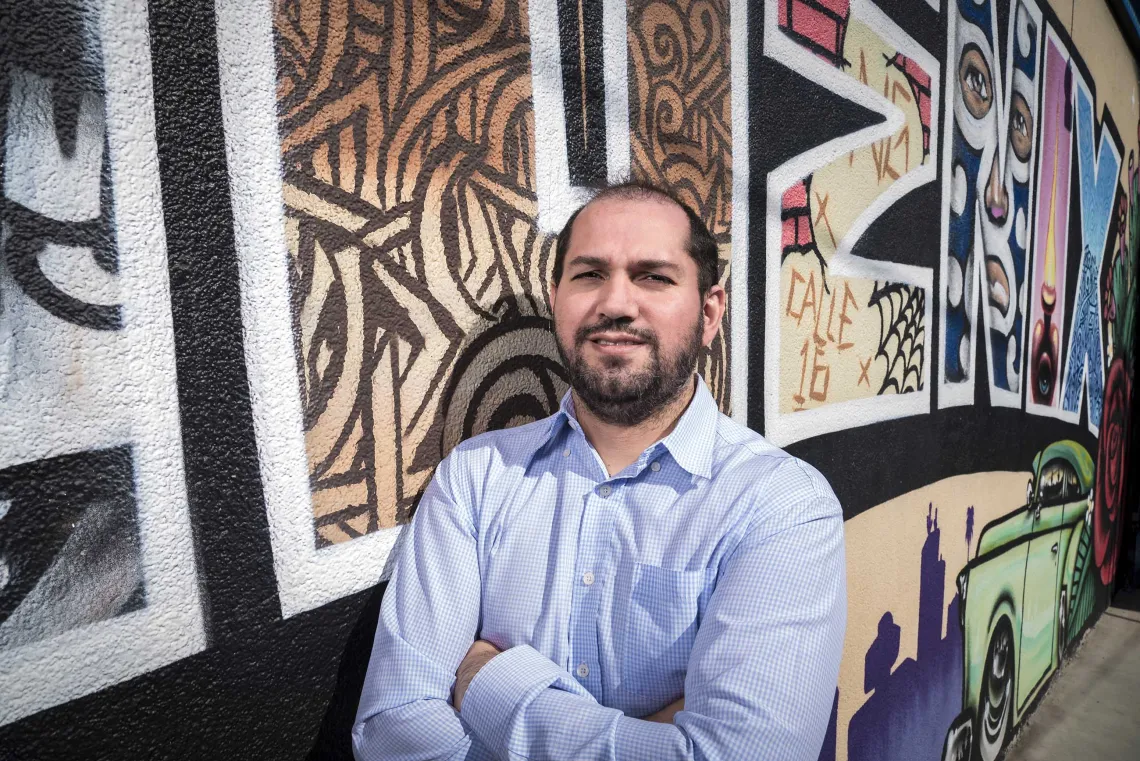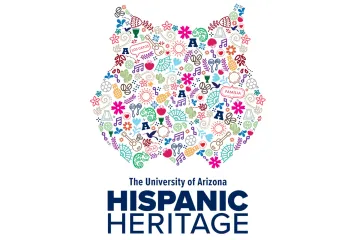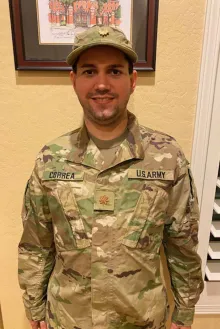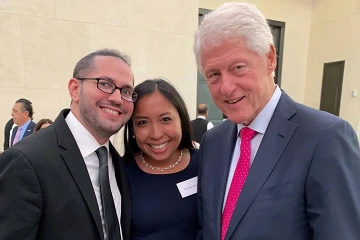Ricardo Correa filling the gap for the underserved
College of Medicine – Phoenix assistant clinical professor felt called to medicine early to help minorities, the underrepresented and refugees.

Ricardo Correa, MD, knew when he was a child that he would grow up to be a doctor. Helping others has always been important to him.
Photo by Noelle Haro-Gomez, U of A Health Sciences Office of Communications
Ricardo Correa, MD, said he believes medicine is about service. Although there was that one occasion when it was actually about … chicken. A real, live chicken.

At the time, Correa, an assistant clinical professor in the University of Arizona College of Medicine – Phoenix’s Division of Endocrinology, was a resident at a county hospital in Miami, Florida, where he helped a large uninsured population, many of whom were of Latin American descent. Patients would be so thankful for the care they received that often they would bring small gifts.
“In underserved communities, that thank you can come in many ways,” said Correa, who was born and raised in Panama. “In Latin America, the priest and the doctor are always the gods of the town, so people bring them things. They feel so grateful that you are taking care of them.
“You cannot say ‘no’ to the patient. It’s very, very rude. Usually, people bring you some sweets or oranges. This person was from a farm, and she wanted to thank me with a huge chicken.”
Correa, who was living in an apartment at the time, had the feathered roommate for about a week before a friend took custody.
The thank-you chicken was an unusual gesture, to be sure, but the sentiment behind it stuck with Correa and continues to drive him to make a difference in and advocate for the underrepresented, particularly those in the Hispanic and transgender communities.
Closing the gap
When he first came to the United States, Correa said he was wowed by all the technology and medications that were available. The catch, he discovered, is not all people have access to them.

Ricardo Correa, who was born and raised in Panama, joined the U.S. Army eight years ago as a way to serve his adopted country.
Photo courtesy of Ricardo Correa
An academic multihyphenate, Correa balances research, education and the patients he sees at the Phoenix VA Health Care System. He serves as faculty advisor to the U of A College of Medicine – Phoenix’s student Migrant Health Interest Group, which does volunteer work through the Society of St. Vincent de Paul clinic that helps uninsured and underserved patients and refugees.
It’s a continuation of his previous work at Brown University, where, after noticing a gap in the health care system, especially in the management of diabetes among minorities and Hispanic individuals, he decided to fill it. Correa created a program for uninsured, undocumented people who suffer from metabolic syndrome to teach them about all aspects of a healthy lifestyle, from cooking to exercise and meditation.
Correa was surprised to discover those same disparities existed in Phoenix despite the larger Hispanic population. Not only has he worked to close the gap in health care disparities, but to make sure the physician workforce better reflects changing demographics. Nearly 1 in 5 people in the United States identify as Latino or Latina, while 6% of U.S. physicians identify that way, according to the Association of American Medical Colleges.
“He’s always fighting for diversity, inclusion and equity,” said Karyne Vinales, MD, program director of the Endocrinology, Diabetes and Metabolism Fellowship at the College of Medicine – Phoenix.
Vinales, who has worked with Correa since 2017, praised his outreach to the Hispanic community, which, in addition to working at low-income clinics, also involves providing mentorship to high school students so that the health care workforce better reflects the 43% Hispanic population in Phoenix.
“He’s not the kind of person who sits on anything,” said Vinales, an assistant professor in internal medicine. “He goes and finds the solution. He connects people around the world.”
Following a dream
Correa told his mother when he was 6 that he would be a doctor. It’s a common childhood dream and one from which Correa never wavered. He was the kid who grabbed the bandages whenever a friend had a cut. At age 13, when he experienced delayed puberty and saw an endocrinologist, he knew that would be his field.
“At those appointments, I was wondering how hormones work, and I started asking questions about how hormones control the body,” Correa said.

Ricardo Correa had the chance to meet with former President Bill Clinton as part of the U.S. Presidential Leadership Scholars program. It was heartening to work with so many professionals from different fields working to make the world a better place, he said.
Photo courtesy of Ricardo Correa
After medical school, he spent two years in Panama studying clinical immunology and tropical diseases before moving to the United States to pursue a fellowship in endocrinology at the National Institutes of Health.
Correa, who joined the U.S. Army in 2016 and has a son and a daughter, describes himself as an introvert, but that doesn’t stop him from speaking out or stepping up. He took part in the U.S. Presidential Leadership Scholars program, which brought together people from different fields, all working to help humanity in different ways.
Correa described it as an amazing experience, even spending some one-on-one time with former President Bill Clinton.
The program was just one of the many awards and accolades for Correa over the years. He was also named one of 100 inspiring Hispanic/Latinx scientists in America in 2020 by Cell Mentor magazine and received the Alliance for Academic Internal Medicine’s 2022 Eric G. Neilson, MD, Leadership in Specialty Internal Medicine Award, which recognizes a leader who has shaped the internal medicine specialties landscape and has brought change to specialty medicine and the internal medicine community.
The awards are nice recognition, but Correa said he believes it’s more important to do what you love and make a difference.
Correa loves seeing patients and advocating for them. Their thanks, even when not accompanied by a chicken, fill his heart.
“Medicine is more than a job,” he said. “It’s a passion.”

